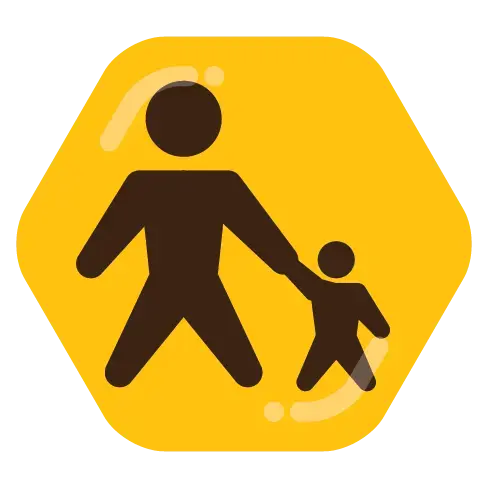High cost of living cities are previewing a problem that seems to be spreading everywhere: The cost of providing child care is getting far too expensive for working parents, while wages of the actual child care workers are insufficient to actually keep people in that career.
The cost of providing child care is getting far too expensive for working parents, while wages of the actual child care workers are insufficient to actually keep people in that career.
From what I - a childcare worker - have been able to figure out over the past decade when I’ve made note of this becoming a trend, this is called a “market failure”. And also it is known to the US Government but they don’t feel the need to do anything about it such as nationalize the childcare sector like they did to the previous child-related market failure: elementary education.
Even outside of places like NYC the cost of childcare is bonkers. Like obviously the city has it bad but even that “cheap” quote that is a weight off that woman’s shoulders is kind of bonkers when you think about it. 50 a day would be $250 a week. That’s about $13,000 a YEAR. And its all well and good when we’re talking about someone making $200k with their dream midtown job(and they dont even mention if she’s married and if so what they make) but like low cost areas have lower wages to boot.
So sure if you’re making 280-300k+ a year that sounds generous, but suddenly when you’re making 50k, 60, hell even 90k. After taxes, healthcare, groceries, rent/mortgage, utilities, car payments(cause you cant get away with living without a car in most of the country outside NYC) and you’re barely breaking even IF you’re breaking even at all.
That doesnt even count emergencies. Car breaking down, medical bills, home repairs , and etc. We need universal childcare and we needed it yesterday!
I can’t seem to shake the feeling that child care is in an economic death spiral right now.
If a child care facility follows NAEYC standards by having 2 teachers for 8 infants, there’s no way around the fact that the revenue per child needs to cover 1/4 of the cost of a teacher’s salary after all other expenses (rent, insurance, utilities, administrative overhead, supplies). If the costs attributable to that class is at $4000/month, and the teacher salaries (including taxes, insurance, retirement, PTO, paid holidays, etc.) are $4000/month, that’s a total of $12k/month to split between 8 infants: $1500/month at minimum, or $2000/month for a minimal buffer/reserve against emergencies, vacancies, etc.
Meanwhile, the actual workers can’t even afford to pay for that child care on their own salaries taking home $3000/month (cost to employer $4000/month), so they end up exiting the career when they have kids of their own, or their child care facility gives up a revenue spot as a perk for retaining workers (requiring a higher charge for all the other kids attending).
If the economics are unsustainable for the parents and for the workers, how can this industry avoid turning into a luxury service only for the rich?
This is why we need public childcare. Much like public transit and other tax funded goods it is something that services a greater societal and economic good, but is a huge burden on the non wealthy. The individual system we currently have doesnt work when businesses are trying to make a profit and when money is spread around like it is.
I work in the childcare sector and the only reason I can afford to have a child of my own (which I do) is because I have the fringe benefit of being able to bring my child to work with me for free. I know some places allow a parent to bring their child for a discount which still might make having a child unreachable given the wages we earn in the childcare sector; but my child’s tuition is completely waived.
This creates a perverse incentive in that some of my colleagues who work for other employers drop out of the workforce and accept government assistance for the duration of the time their children are in need of daily care. Once the children age in to a pre-K or HeadStart program or age into regular elementary school, they rejoin the workforce. But for those first 3, 4, or 5 years, they are on welfare because they simply cannot afford childcare.
Also, thank you for the Gift Link. Much appreciated so that I could read the article.
🤖 I’m a bot that provides automatic summaries for articles:
Click here to see the summary
Not long after Crystal Springs started her new job at a large insurance company in Midtown Manhattan earlier this year, she realized that a much bigger chunk of her paycheck than she expected was going directly to child care for her 5-year old daughter.
Ms. Springs had dreamed that the job, which allowed her and her husband to make about $200,000 a year combined, would help provide a comfortable middle-class life for her family in Ozone Park, Queens.
In a notoriously stratified city experiencing its worst affordability crisis in decades, the skyrocketing cost of child care is one of the few issues that connects working families across geography, race and social class.
Kathy Hochul have each taken some action, the mayor’s decision to cut some funding for a free preschool program for 3-year-olds and his administration’s consistent delays in paying city-funded day care providers have exacerbated the issue.
The issues that have long plagued the industry — high staff turnover and a shortage of workers caused by stubbornly low wages, and supply lagging behind parent demand — have only become more acute in the wake of the pandemic.
One family that earns more than $400,000 began making preliminary plans to leave the city after finding a day care in their Williamsburg, Brooklyn, neighborhood that would cost over $4,700 a month for one of their children to attend full-time in fall 2024.
Saved 87% of original text.
deleted by creator


